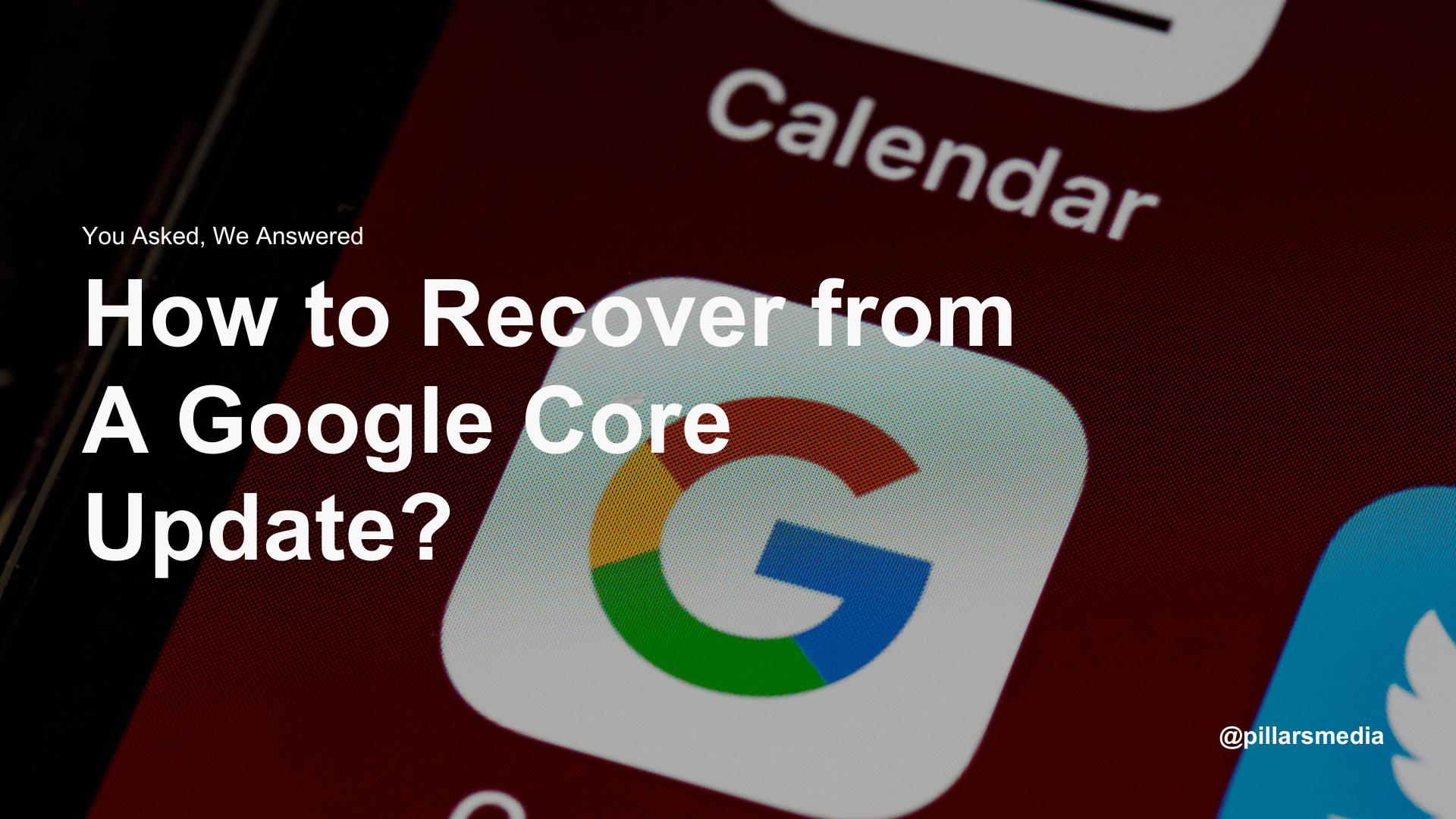Solutions to recover from a Google Core Update in 2024
Every time Google announces a Core Update, many websites seem to be affected by it, whether positively or negatively.
For those who have put in long hours and work into building consistent organic traffic to their website, being negatively impacted by Google’s Core Updates can be frustrating.
(Believe us when we say we understand that feeling.)
So in this blog, we’ll try our best to share what works for us and how you too can recover from Google’s Core Updates.
If you have any other ideas or solutions that could help recover from Google Core Updates that we might have missed, feel free to drop us an email.
Let’s help each other out!
What are Google Core Updates?
Google Core Updates are significant changes made to Google’s search algorithm to improve the relevance and quality of search results. These updates don’t target specific pages or sites but rather focus on enhancing the overall search experience.
The primary purpose of these updates is to reward content that genuinely serves users’ needs while demoting content that was created solely to manipulate search engine rankings. This means that websites focusing on delivering high-quality, valuable content are more likely to benefit, whereas those employing manipulative tactics may see a drop in rankings.
Google Core Updates are part of the ongoing effort to ensure that its search engine delivers the best possible results. As the web evolves, so does the way Google ranks and indexes content, leading to these periodic updates.
Google Core Updates 2024 timeline
Staying informed about Google’s update timeline is crucial for understanding the changes that could impact your website.
Here’s a breakdown of the Google Core Updates in 2024:
- August 15, 2024 – August 2024 (Core Update)
Google’s August 2024 Core Update aims to promote high-quality content while demoting low-value SEO content. This update, expected to take a month to fully roll out, is designed to boost content that provides genuine value to users. - July 31, 2024 (Explicit Fake Content Update)
This update focuses on combating non-consensual explicit content, particularly targeting artificially generated images and videos, often referred to as ‘deepfakes.’ This update reflects Google’s commitment to maintaining the integrity and safety of its search results. - June 20, 2024 – June 2024 (Spam Update)
The June 2024 Spam Update was implemented to crack down on spammy practices that aim to manipulate search rankings. This update, completed within a week, emphasizes the importance of maintaining clean, ethical SEO practices. - May 14, 2024 (AI Overviews)
Google introduced AI-generated summaries, known as AI Overviews, to U.S. search results using the Gemini model. This update represents Google’s ongoing integration of AI technology to enhance the search experience. - May 6, 2024 (Site Reputation Abuse)
This update addresses the issue of site reputation abuse, with Google taking manual actions and planning future algorithmic updates to penalize sites engaging in such practices. - March 5, 2024 – March 2024 (Core Update)
The March 2024 Core Update focused on addressing low-quality content and introduced new policies to combat spam and manipulative practices. It took 45 days to roll out, with the completion announced on April 26.
6 ways to recover from a Google Core Update
The August 2024 Google Core Update is one of Google’s latest attempts to enhance search quality by promoting content that genuinely helps users and demoting content created solely for ranking purposes. If your website was negatively impacted by this update, here’s how you can recover:
- Identifying and improving website problems
- Don’t use quick fixes
- Make meaningful content changes
- Don’t delete content hastily
- Create user-focused, up-to-date content
- Stay calm and patient
1. Identifying and improving website problems
Start by analyzing your website to identify any problem areas. Check for broken links, 404 pages, poor-quality backlinks, and slow loading speeds. These technical issues can negatively impact your rankings. Tools like Google Search Console and PageSpeed Insights can help you identify these problems.
2. Don't use quick fixes
Avoid the temptation to implement quick fixes that might offer short-term gains but could lead to long-term penalties. For example, removing certain page elements because they are rumored to be bad for SEO can backfire. Instead, focus on changes that make sense for your users and are sustainable long-term.
3. Make meaningful content changes
Consider rewriting or restructuring your content to make it more user-friendly. This might mean breaking up large blocks of text, adding more visuals, or improving navigation. The goal is to enhance the user experience, making it easier for users to find the information they need.
4. Don't delete content hastily
Deleting content should be a last resort. Only remove pages that you believe cannot be salvaged. Instead, try updating and optimizing the content to better meet user intent.
5. Create user-focused, up-to-date content
Google’s core updates consistently reward content that is genuine, user-focused, and up-to-date. Continue producing content that provides in-depth coverage and addresses the needs and queries of your target audience.
6. Stay calm and patient
The rollout of a core update can take weeks, sometimes months. It’s important to stay calm and avoid making hasty decisions. Allow the update to fully roll out and give Google time to reassess your content before making any major changes.
Conclusion
Recovering from Google’s Core Updates, especially the August 2024 Core Update, requires a strategic and patient approach.
Focus on identifying problem areas, making meaningful content changes, and ensuring that your website is user-friendly and up-to-date.
If you need help recovering from a Google Core Update or want to improve your digital marketing strategy, schedule a consultation with us today.
You Asked, We Answered
“You Asked, We Answered” is one of our content segments where we collect questions related to digital marketing, website design, leads generation, Google Ads, and more, from different platforms (Reddit, Quora, etc.), and answer them here!
We’ll be sharing a lot more on our website. If you are interested in reading more of these, let us know through our email!

